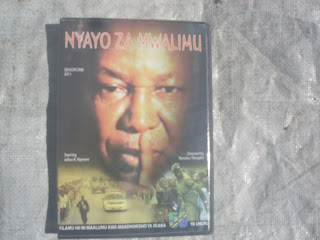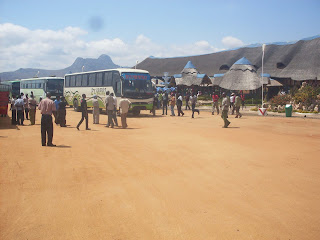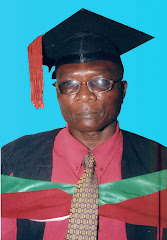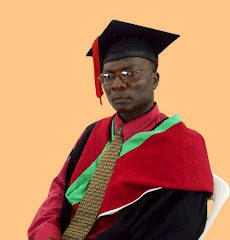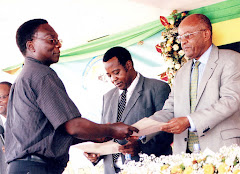FORMER Dean of the faculty of commerce at the University of Dar es Salaam (UDSM) Dr. Fraterm Mboya has urged the management of the University of Dar es Salaam Business School (UDBS) to conduct a thorough continuous assessment programs to its students so as to let them build up their confidence. He says some graduates from UDBS lacks proper communication skills in both written and oral English language, an aspect he termed would cause a detrimental effects for their future development especially at this time when Tanzania has signed East African common market agreement. In view of this, Dr. Mboya has suggested for an effective concentration of the so-called self assessment program for students, otherwise if the trend is not changed, they won’t get their students being employed by any institutions in the financial and commercial sectors in the country. However, he has asked the management of the UDBS to sit down and think of how to practice an effective continuous self-assessment for its students internally, and might also get an external assessment through exchange program.
 One of the greatest achievements the University of Dar es Salaam Business School is proud of is a State-of-the-art building it has constructed at the campus in Dar es Salaam.
One of the greatest achievements the University of Dar es Salaam Business School is proud of is a State-of-the-art building it has constructed at the campus in Dar es Salaam.He made this remark two weeks ago during one week occasion of the UDBS celebrations to mark the 50th anniversary of the UDSM whose climax would be held later on 25th October this year. Dr. Mboya who is currently the Director General of the Capital Markets Authority (CMA) was a dean of the faculty of Commerce at the UDSM between 1986-1992 before it was changed into a business school in 2008. On the other way, the current dean of the Business School, who is also a former student at the university during which Dr. Mboya was a dean, Dr. Marcelina Chijoriga, confirmed that, she has introduced an English language program that takes six months duration. She said before the school undertakes the registration of its students, as a full time study program, the course helps beginners learn English language before embarking on an effective training programs. According to her, the essence of doing this is to empower students to get used to good command of English language while communicating. This language program would enable many graduates to be conversant and master their communication skills wherever possible.
Dr. Chijoriga also inaugurated the advisory board of the UDBS, four members were elected by the committee among them is Dr. Mboya. The purpose of launching the board is to get people from outside the main campus to give advices pertaining to the development of the UDBS school. Highlighting the development which her school has attained so far within 50 years of its existence, Dr. Marcelina Chijoriga said the business school has increased its student’s registration from 120 students in 1979 to about 2,500 students at present. She noted that, since the establishment of the faculty since 1979, now it is independent and had widened up its educational curriculum. She said adding that, the school has instituted undergraduate evening degree programs as well as a new building has been constructed within the campus. These are the most achievements attained, and apart from that, Dr. Marcelina has however asked her students to concentrate hard in business studies so as to cope with the situation in order to curb with the challenges that might emerge in East African common market. Poor communication skills facing most Tanzania higher learning students is an issue which various academicians in the country have spoken about it in broader perspective, and the situation seems to deteriorating without improvement.
 The Minister for Trade and Industries Dr. Cyril Chami congratulates one of the advisory Board committee member of the UDBS school in a function to which he was the guest of honor at the UDSM main campus in mid of July this year. On his left standing is the UDBS Dean Dr. Marcelina Chijoriga
The Minister for Trade and Industries Dr. Cyril Chami congratulates one of the advisory Board committee member of the UDBS school in a function to which he was the guest of honor at the UDSM main campus in mid of July this year. On his left standing is the UDBS Dean Dr. Marcelina Chijoriga
To start with, Professor Elifas Bisanda of Open University said last week that, most Tanzanian scholars from higher learning institutions in the country do not think deeply, they mostly think of getting certificates but not an in-depth knowledge which can make them think more critically. According to him, it is a fact that 20 years ago the top cream of graduates in most higher learning institutions were so bright, the challenge lies in the new generations which relies in short cuts in acquiring knowledge for their development. The Vice-Chancellor of Mzumbe University Professor Joseph Kuzilwa pointed out that graduates needs both technical and critical knowledge, it’s a matter of building knowledge and not be specific in one area. According to him, one way of grooming Tanzanian scholars into maturity is that, a student has to go himself to library or to the internet to look for the materials for themselves as time for attending lectures is not enough to enable them absorb what teachers shall have highlighted for them. A renowned radio broadcaster and an academician, Mrs. Marie Shaba pointed out that, Tanzanian scholars are not narrow minded, but it is because of the environment in which they were brought up. She is in the view of the fact that, the parental care under which most scholars are brought up is what makes them think the way they are. Commenting on the issue, Mr. Rakesh Rajani of TWAWEZA-East Africa, a Non-Governmental organization noted that, “there is a silly system of education here in Tanzania focusing on the problem of that of the medium of communication from primary level. He says that lack of confidence is built as a result of being illiterate in one area.
The above speakers gave out their comments in a live show program entitled “This week perspective” which is prepared by a renowned journalist and a long time TV presenter Mr. Adam Sembeye which was aired on last Monday under the subject. “Employability of graduates in the country”
















